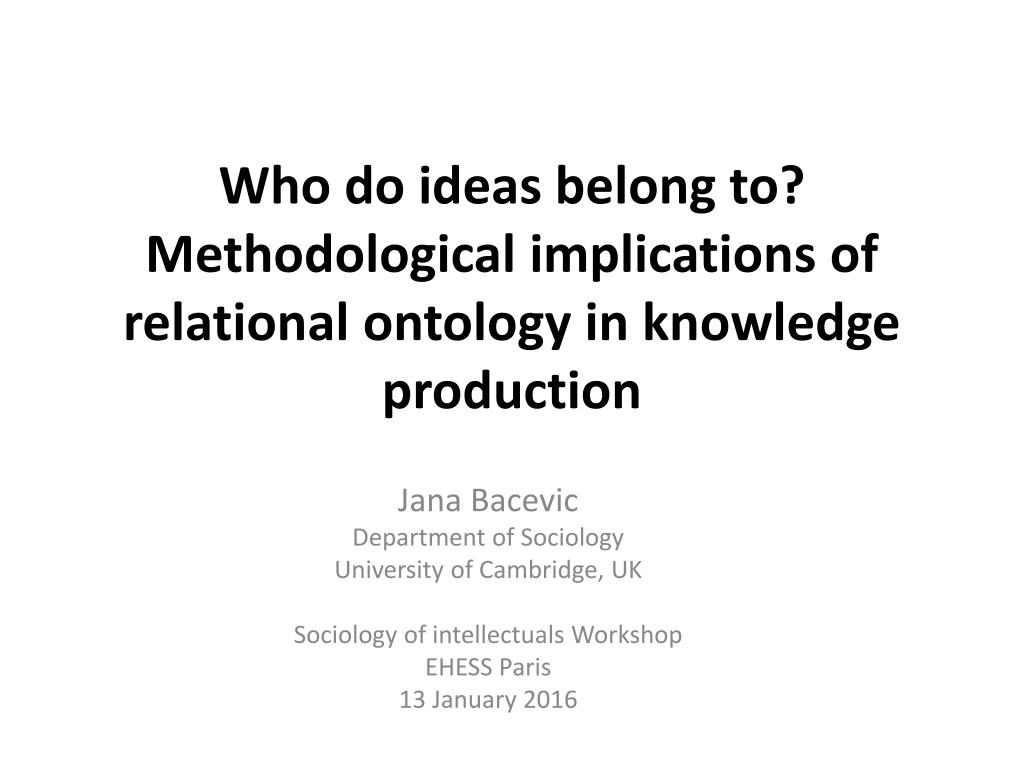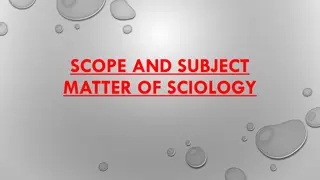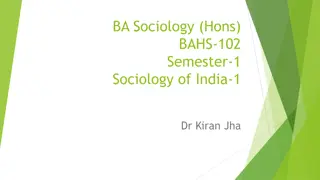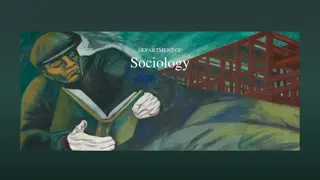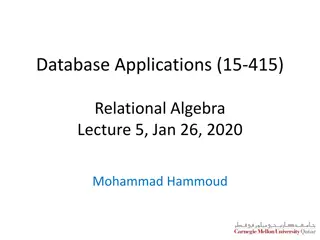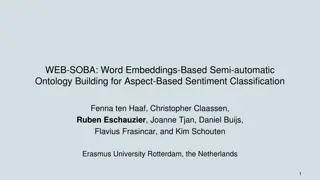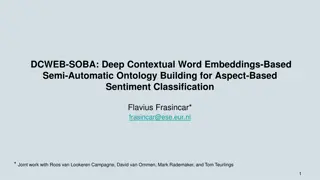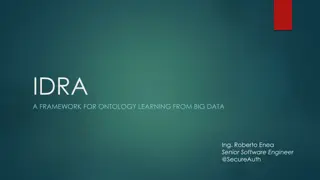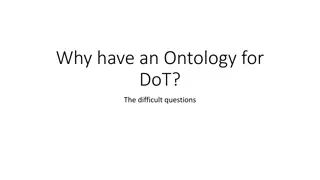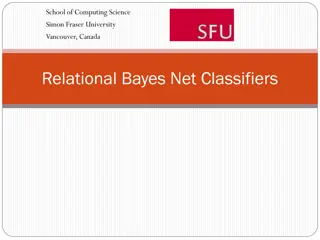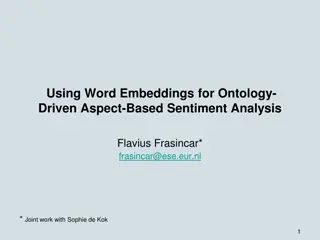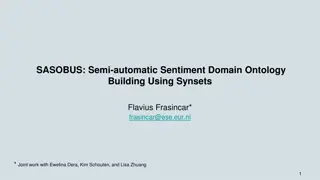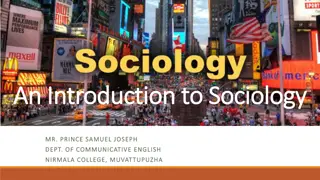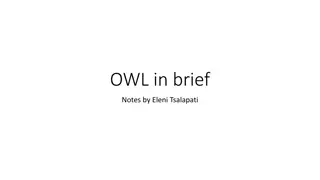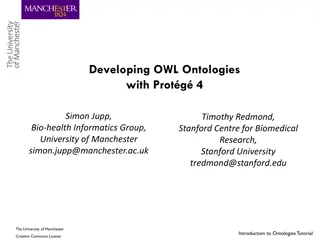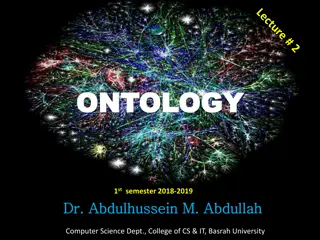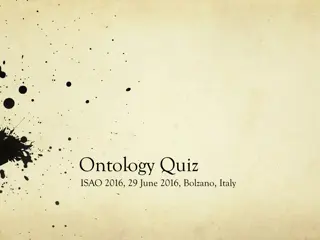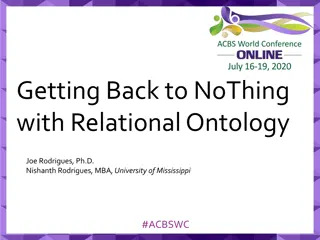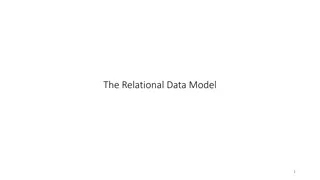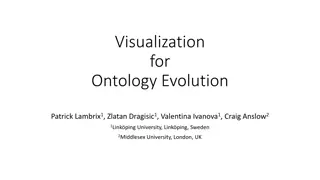Understanding Relational Ontology and Knowledge Production in Sociology
This academic exploration delves into the concept of relational ontology and its methodological implications in knowledge production, focusing on the ownership of ideas and the role of intellectuals as knowledge producers. It discusses the foundational singularity, the generative significance of context, and the sociological perspective on social relations as emergent effects of interactions between individuals and social systems.
Download Presentation

Please find below an Image/Link to download the presentation.
The content on the website is provided AS IS for your information and personal use only. It may not be sold, licensed, or shared on other websites without obtaining consent from the author. Download presentation by click this link. If you encounter any issues during the download, it is possible that the publisher has removed the file from their server.
E N D
Presentation Transcript
Who do ideas belong to? Methodological implications of relational ontology in knowledge production Jana Bacevic Department of Sociology University of Cambridge, UK Sociology of intellectuals Workshop EHESS Paris 13 January 2016
Relational ontology Plural relations are original and therefore that both singularity and relations between singularities are always secondary The founding singularity, given that it emerges as a putative possibility, will only have occurred after the event henceforth called a constituting plural event (Andrew Benjamin, Relational Ontology: Philosophy s Other Possibility, SUNY Press, 2015).
Ontology of intellectuals? Intellectuals as producers of knowledge Ownership over ideas Translation of intellectual competence into political/social engagement The generative significance of context (social, political, historical, economic) Networks of knowledge production and dissemination (social network analysis, translation/reception studies) Actor-network theory materiality of concepts (viruses, quarks, etc.)
Relational sociology Emirbayer ( Manifesto for a Relational Sociology , 1997), Pier-Paolo Donati ( Birth and development of a relational theory of society , 2005), Donati and Archer ( Relational Subjectivity , 2015) Postulates: (1) society as fundamentally relational (ontological); (2) emphasis on the constitution of relations (epistemological)
The central point is that social relation cannot be explained neither basing on individuals action, nor basing on structures conditioning: it places itself in another reality compared to that of agency and of operations (mechanisms) of social systems. It is the point to conceive relation neither as a bridge between individual and system, nor as a mix of individual and systemic elements, as intended by the majority of the sociologists [but] to understand that social relation is the emerging effect of interplays between individual actions and social system, where actions, systems and relations are provided with inner characteristics and powers which are peculiar to them. (Donati, 2005)
(iii) Relational sociology suggests another theorem being the base of the whole sociological theory, the one of relational identity: A = r (A, -A), according to which A s identity is a relation between A and what is not A. Such relation is a mediation, exactly the mediation acted by actors when they define (build over time) their identity in every situation. Such identity grows by relationing , or rather it is not immediate (as in A = A), but it is not even built on a principle of dialectical denial. (Donati, 2005)
Intellectual positioning as relational Baert (2012): context-cum-relational view of intellectual products; interventions acquire meaning in a particular setting, dependent on the status, position and trajectory of the intellectual products available at the time relational epistemology intellectual author(s) and other But: positioning not only in relation to other intellectuals/products, but also events (e.g. WWII in the case of Sartre) relational ontology?
What happens if we view intellectuals and ideas as co-produced? Event not as ontological rupture (contra Badiou); acquires meaning through acts of positioning (performative) Intellectual production in part always also production of the context Engagement as something that happens on top of (intellectual ownership of ideas) vs. engagement as something that is intrinsic part of intellectual production Political economy: producers/owners of labour Reception/audience: markets (fields, etc.) Intellectuals as generated through the event; intellectual positioning a pleonasm?
Illustration: the academic life of neoliberalism Since end-1990s: rapid rise of the number of (academic) articles that use/mention neoliberalism Boas and Gans-Morse (2009); Peck (2010), Venugopal (2015): too broad, value-laden, under- defined How to explain the rise and expansion of neoliberalism as a diagnostic? Boas and Gans-Morse: framework for analyzing essentially contested concepts (Gallie 1956)
Positioning effects of neoliberalism While a fifth of the articles on neoliberalism in our sample referred prominently to other people as neoliberals, all of our research, we did not uncover a single contemporary instance in which an author used the term self-descriptively, and only one in which it was applied to the author s own policy recommendations (Boas and Gans-Morse, 2009) Bourdieu s Contre-feux : (1) Establish neoliberalism as an acceptable diagnostic term; (2) Equalize France and (earlier) developments in UK and US general positioning and defense of French republican model => chicken/egg?
Methodological implications of relational ontology Context and intervention are co-occurring; descriptions/interpretations of context are always intellectual interventions (Bourdieu s Political Ontology of Martin Heidegger ; Le Goff s Mai 1968, l h ritage impossible ) Fundamental relationality of intellectual production (intellectual field is not autonomous) Political ontology of neoliberalism ; would there be neoliberalism without neoliberalism? Neoliberalism is representational; intellectual production is reproductive Fundamental materiality of intellectual production (follow the money) Towards a political economy of intellectual interventions
